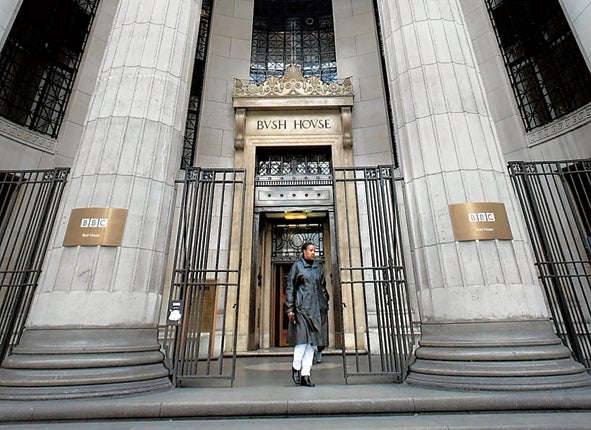BBC: Freeze on licence fee is an 'act of cultural vandalism'

The Government's decision to freeze the BBC licence fee for six years and cut the corporation's budget by 16 per cent is an "act of cultural and political vandalism", the former Culture Secretary Ben Bradshaw said last night.
George Osborne, the Chancellor of the Exchequer, yesterday told the House of Commons that the BBC must make cuts, "similar to the savings made by government departments". In addition to the licence-fee freeze, the BBC will have to find £340m a year for a series of new funding commitments, including paying for the World Service, supporting the Welsh language television channel S4C and contributing to the roll out of internet broadband in rural areas.
Mr Bradshaw, a former BBC journalist, said his former colleagues were devastated by the scale of the cuts. "There's a sense of total despair at the BBC. Of course BBC professionals will always try to do the best they can in the circumstances. But when they see a government that clearly has an agenda against the BBC, not being stood up to by BBC management, that's not conducive to those people's commitment and dedication. People said before that morale at the BBC was lower than it has ever been. It's going to be non-existent after this." Although he said he was not making a personal criticism of the BBC director general Mark Thompson, he said that the corporation's management had "caved in" to political pressure. "They should have fought much harder," he said.
"The BBC is not a public organisation and cutting the licence fee has no impact whatsoever in reducing the deficit. The Government is pursuing the agenda of the BBC's competitors and enemies, and it's time the BBC started to stand up to this sort of treatment," said Mr Bradshaw.
In an attempt to defend their handling of the situation, the BBC's two most senior figures, Mr Thompson and the chairman of the BBC Trust Sir Michael Lyons, issued statements yesterday claiming that the settlement offered the organisation a stable future. Mr Thompson said: "This is a realistic deal in exceptional circumstances securing a strong independent BBC for the next six years."
In a blog published yesterday, Michael Crick, the political editor of BBC2's Newsnight, wrote that Mr Thompson had been "summoned back" from the train he was taking to his home in Oxford in order to attend late-night negotiations at the Department of Culture, Media & Sport.
The BBC agreed to take on the funding of the World Service, having been alarmed that it might be saddled with the greater £556m-a-year cost of funding free licence fee provision for the over-75s. The BBC's bargaining position in the frantic final hours of talks this week was not strengthened by the fact that Sir Michael has already signalled his intention to leave next year.
Yesterday he said: "This is a tough settlement, but it's also a settlement that delivers certainty and stability for the BBC and licence-fee payers." He said he was heartened that the BBC's new responsibility for the World Service – previously funded by the Foreign Office – would ensure the vibrancy and independence of that network.
But Mr Bradshaw said the arrangement, "puts a huge question mark over the future of the World Service". "Why should the UK licence-fee payers fund programmes that they cannot even see or hear in this country? That poses a very worrying question," he said.
The shadow Culture Secretary also rejected the suggestion that the BBC would be able to protect programming while absorbing the cuts from its £3.6bn budget, the size of which has been criticised by some commercial rivals.
"Cuts of this magnitude are going to devastating for the quality of BBC programmes and their impact on our wider creative industries which are more dependent than ever on the original content that the BBC produces and supports," said Mr Bradshaw.
"This is an act of cultural and political vandalism by the Conservatives. It's time that the BBC started to make the case for itself and remind people what good value it is."
Join our commenting forum
Join thought-provoking conversations, follow other Independent readers and see their replies
Comments